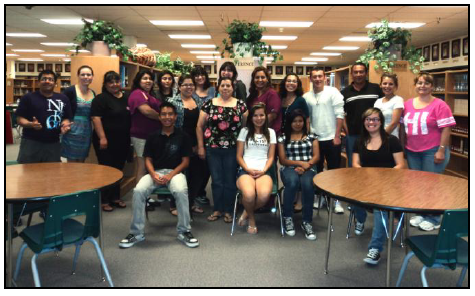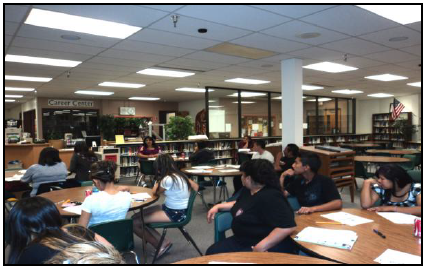Introduction
A key factor associated with academic success and dropout prevention is parent involvement. In order to help parents and students succeed in school, UNCE offers the Together for a Better Education program. The program brings together partners from high schools, local colleges, families of 9-12th grade students, college-age mentors, local nonprofits and UNCE staff. The program consists of six sessions held in English and Spanish in various locations across Las Vegas. This fact sheet provides an overview of Session 5: Roads to Higher Education.
University/College Application Requirements
The preparation of the college application process begins in the ninth grade or earlier and is reflected in the types of classes that students take and the grades they receive. In addition, there are specific items that need to be in place before applying to college. Listed below are some general guidelines; however, students should check the requirements of the specific colleges and universities.
Before you apply to Universities/Colleges:
- Know application deadlines
- Review admission requirements
- Determine your status if you are a transfer student
- Apply for financial aide
- Review frequently asked questions (FAQ) on how to submit the online application for admission
- Pay application fees
- Draft essay
- Have immunization records
- Meet with high school and college counselors to select classes
- Request high school transcripts
- Take required admission tests, if necessary
- Take required placement tests, if necessary
- Determine payment method (financial aid, scholarships, grants, loans, etc.)
- Obtain letters of recommendation (send thank you notes).
- Some colleges have an open door admissions policy- meaning anyone can attend and there are no pre-admission standards
- In some cases, a history of involvement in extra-curricular activities, AP classes, and early employment in addition to GPA and test scores may be considered an advantage to an admission application.


Important Placement Tests
Entrance exams are usually associated with applying to four-year universities. If students transfer from a two-year community college to a four-year institution, they are not required to take the ACT or SAT; however, students may be required to take placement tests.
Entrance Exams:
- Preliminary SAT/National Merit Scholarship Qualifying Test (PSAT).
- Evaluates skills in critical reading, math and writing.
- American College Testing Assessment (ACT)
- It is a set of four multiple choice tests in English, Math, Science and Reading
- Scholastic Aptitude Test (SAT)
- Evaluates critical thinking skills through essays, multiple choice and fill-in-the-blank
- Placement Test, depending on which university or college a student attends, there may be other various tests to take.
Apply:
- Create a college list; narrow your choices
- Apply to five to eight colleges (don’t over apply)
- Prepare for interview, if applicable
- Expect college acceptance letters
- Reapply, if necessary
Parents can help their children on the road to a higher education by helping them decide what college is suitable for them, understating the demands of taking exams and readily providing financial information they may need during the application process. It can be useful to take an actual or virtual tour of the university to help narrow down the decision.
Source: North Carolina Cooperative Extension (2011). Together for a Better Education Facilitator Manual.
To learn more about this topic and “Together for a Better Education” contact: Nora Luna at (702) 940-5420 or email.


Funded by the U.S. Department of Education and brought to you by the Nevada System of Higher Education (NSHE)


